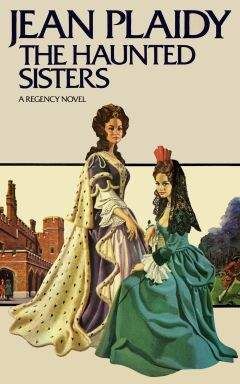Jean Plaidy - For a Queens Love: The Stories of the Royal Wives of Philip II
На сайте mybooks.club вы можете бесплатно читать книги онлайн без регистрации, включая Jean Plaidy - For a Queens Love: The Stories of the Royal Wives of Philip II. Жанр: Прочее издательство неизвестно,. Доступна полная версия книги с кратким содержанием для предварительного ознакомления, аннотацией (предисловием), рецензиями от других читателей и их экспертным мнением.
Кроме того, на сайте mybooks.club вы найдете множество новинок, которые стоит прочитать.

Jean Plaidy - For a Queens Love: The Stories of the Royal Wives of Philip II краткое содержание
For a Queens Love: The Stories of the Royal Wives of Philip II читать онлайн бесплатно
“I will kill … kill him … with mine own hands!”
TWO
In The Palace of the Louvre, a frightened girl of fourteen was preparing herself for her marriage with the greatest monarch in the world.
She had wept so much that she could weep no more. She had confided her miseries to her young sister-in-law, Mary Stuart, herself a bride of less than a year. Mary was kind, for the two girls had been brought up together and were great friends, rivals in beauty and learning, and so happy until the news had come of this great honor which had fallen to Elisabeth.
“It is so different for you!” cried Elisabeth to Mary. “Such a marriage as yours could not but please all concerned. You married François, and you and François have loved each other ever since you came to live with us, and it is all as it was before, except that you are his wife; and when he is King of France you will be Queen. Your life is easy; you see whither it is leading. Whereas I must go away … right away from France to this land of Spain where they never laugh, and dance only in the most solemn manner. And I must marry an old man—nearly twenty years older than I. He is thirty-two, Mary. Think of that! And he has already had two wives. They say he is gloomy and that it is all prayers with him.”
“But think, dear Elisabeth,” said Mary. “You will be the most important Queen in the world … the Queen of Spain.”
“I would rather be Queen of France than of any country in the world.”
“But you will be Queen of Spain as soon as the ceremony is over. I can only be Queen of France if dear Papa dies, and that could do nothing but bring unhappiness to us all. And, Elisabeth, being Queen of France is not always so very pleasant. Think of Queen Catherine, your mother.”
Elisabeth glanced over her shoulder. She was always afraid of talking about her mother, who would come so silently into a room, watching and listening, so that one turned and found her there. It was said that she had strange powers, and Elisabeth often felt that she knew what was being said even when she was not there.
“She is not here,” said Mary now, following her gaze.
“No; but she might be.”
Mary was very bold, conscious of that beauty which attracted all at court. She had often been careless before the Queen, showing a lack of respect which she would not have dared show Diane, Duchesse de Valentinois, the King’s mistress, who ruled the court as Queen. Mary was careless, and Elisabeth feared that one day she would be sorry for behaving as she had toward Queen Catherine.
“Well,” went on Mary, “you have seen how a Queen may be humiliated. It is Madame Diane de Poitiers—I beg her pardon, Duchesse de Valentinois—who is the real Queen of France. But they say that King Philip would not keep a mistress to humiliate his wife. You may be sure that the Queen of Spain will be treated with more respect than your honored mother, the Queen of France.”
Elisabeth went to the window. “I hate it,” she said. “All these people … all these foreigners … all the ceremonies and the preparation. Oh, Mary, how wonderful it would be if we were all young again without thought of marriage!”
“There are always thoughts of marriage with people like us.”
“I mean if we were in the schoolroom. You remember? Vying with each other, trying to write better Latin verses than one another? And Papa’s coming in to see how we were progressing? …”
“Coming in with Diane; and we all had to kiss her hand, do you remember, and she would fuss over us as though she were our mother?”
“I remember.”
“And the Queen, your lady mother, would come in, and …”
“I remember that, too,” said Elisabeth. “And once you called her a merchant’s daughter. You should not have done that, Mary.”
“But I did, and she is …”
“I should not listen to you.”
“Elisabeth, you are afraid of life. That is your weakness. You are afraid of your mother, and now you are afraid of Philip. You are beautiful—almost as beautiful as I am! Never fear. You can enjoy life at the court of Spain … if you are wise.”
“I wish I were as gay as you. But it is so easy to be gay when you are married to dear François and may spend the rest of your life here … with Papa and all the family.”
Elisabeth looked down on the gardens, where her young sister Margot was walking arm in arm with her special playmate, young Henry of Guise. Margot was only six, yet self-assured; they were like a pair of lovers, those two. François and his young brother Charles came into the gardens; they were looking for Mary, Elisabeth knew, for they both adored her.
“Oh, why cannot I stay here!” cried Elisabeth. “This is my home. This is where I belong. Mary, François and Charles are looking for you.”
Mary came to the window and rapped on it; the boys looked up. Young Margot and Guise paid not the slightest attention; they were absorbed in each other.
“Go to them,” said Elisabeth. “Do not let them come here. I wish to be by myself for a while.”
Mary kissed her tenderly. “Do not fret so, little sister.”
When Mary had gone, Elisabeth sat down and covered her face with her hands. She was trying so hard not to think of what was before her. She had been given Philip’s picture. Such a cold face, she thought it; she did not know whether it was cruel or not. He had fair hair and blue eyes; and when the picture had been formally given to her she had had to kiss it.
Her father had said: “This is the greatest honor that could befall any Princess. The great Philip of Spain has chosen you for his wife.” Oh, why had he not married the Queen of England? Why could she not have stayed just a little longer with her family? Her sister Claude had been married recently, and Claude was even younger than she was; but Claude had been married to the Duke of Lorraine, and that meant that she would not go right away from her home; she could often come and see them all. What comfort that was! But Elisabeth knew that once she had crossed the borders to that gloomy land of Spain and entered the household of her gloomy husband, she would never return.
“Holy Virgin,” she prayed, “let something happen … anything … but let me stay with Mary, François, Charles, little Hercule, Margot, Papa, and Diane and … and my mother …”
Suddenly she knew that she was not alone in the room. Hastily she lowered her hands. Her mother had entered quietly, and was standing very still, leaning against the tapestry on the wall, watching her.
Elisabeth rose hastily. “Madame, I … I did not hear you enter.”
“Stay where you are, my child.”
The flat features betrayed nothing; only the dark eyes seemed alive in that heavy face.
“So,” went on Catherine de Medici, “you have been weeping and wailing and getting your sister-in-law to commiserate with you because you are to be the most important Queen in the world. That is so, is it not?”
How did she know such things? She knows everything, thought Elisabeth in a panic; she has some secret power which René or the Ruggieri brothers have given her.
“Mother …” she began. “Madame …”
“Yes, my child, you are sad because you must leave your home. My dear daughter, it is the fate of us all. I was no older than you when I left my home in Italy and came to France.”
“Yes, but …”
“But what?”
“That was to marry Papa.”
Catherine gave that loud burst of laughter which was familiar to them all. “He was a stranger to me.”
Elisabeth looked at her plump mother and thought how she would willingly change places with her, endure all the humiliations which any other woman would suffer—Catherine gave no signs of suffering them—from the dazzling Diane, who, although so much older than the King and the Queen, had had the King’s devotion ever since he was a boy.
Elisabeth would willingly change places with anybody who had not to go to Spain to marry Philip.
“Yes, but …” faltered Elisabeth.
“I was as alarmed as you are. But you see, I became the Queen of France and the mother of you all, and one day, my daughter, you will laugh at your fears even as I do now at mine.” Catherine came close to Elisabeth. “You will have much to occupy you in your new life. I shall write to you often and my letters will bring you something of myself. When you read them it will be as though I am speaking to you. You will remember that?”
Elisabeth tried to conquer the fear she had of her mother. She knew all the children had it—except young Henri, whom Catherine petted and adored. Even Margot, brazen and bold, trembled in the presence of her mother.
“You will be our little ambassadress at the court of King Philip, dearest child. You will not forget us all … your father and mother, your brothers and sisters.”
“I shall never forget you,” cried Elisabeth. “I shall long to be home with you.”
“Bah! When you are Queen, you will be content with your lot. You are young and very pretty, and I doubt not that your husband will wish to please you. That will depend on you. It is for you to make him wish to please you.”
Elisabeth wished her mother would not smile in that way. It frightened her even more than when her face was quite expressionless. The smile suggested distasteful things—caresses, love-making with a husband whom Elisabeth could only be happy in forgetting.
“There is a stepson, Elisabeth—Don Carlos, he who was to have been the bridegroom.” Catherine laughed again. “Never mind. You have the better one. A king on the throne is worth many an heir to the same throne. For we know what is, but how do any of us know what may be? Now, child, this will be your first mission at your husband’s court. You will arrange a match between your sister Margot and Don Carlos. That is what I wish you to do; and if you achieve it I shall be very proud of you. It will be almost as though I am there … so you will not be lonely.” She laughed again. “I shall write to you often. I shall give you the benefit of my advice and comfort. Dearest daughter, although you will be gone, we shall not really be parted. You believe that, do you not?”
“Yes, Madame.”
Catherine put her cold lips against her daughter’s forehead. Then she went silently from the room.
Elisabeth closed her eyes and began to pray for a miracle, something that could happen to prevent or even delay her journey to Spain.
She saw her father later. It was easier to talk to him although he was the King. It had always been thus. When he had come to the nursery, the little ones, unaware of his rank, had clambered over him, pulling his beard.
Now that beard was silver although he was only forty. He was a man slow of speech, a little taciturn in the company of adults, but at ease with children. He was Father first, King second, to his family.
She told him how she dreaded the ceremony, how she was afraid of the solemn Duke of Alba, who had come from Flanders to act as proxy for his master, since the Kings of Spain did not leave their country to bring home their brides; their brides came to them.
He was kind; he understood.
“It makes me sad to lose you,” he said, “although I shall be proud of my little Queen of Spain.”
“But to leave you all, Papa … all my brothers and sisters and you … dearest Papa … you most of all.”
He stroked her hair. “It is the fate of such as we are, dearest child,” he said. “We all have to face it. Princes and princesses all have their marriages made for them.”
“But, Papa, I cannot bear it. I cannot.”
“Dearest, you will. We all do. In a little while you will be happy there, and Spain will be your home instead of France.”
“But Spain is not France, and it is France I love.”
“It is your home you love, Elisabeth; and Spain will be your home, for your home will be where your husband is. You must not cry. You must not have red eyes for the ceremony or the King your husband will hear of it and feel slighted. He might even cancel the arrangements!”
“Papa, do you think he would?”
“Elisabeth, if it were not this marriage it would be another.”
“I have prayed, Papa, that something will happen so that I need not go.”
“I said earnest prayers at the time of my own marriage.”
“But you found happiness later.”
“Great happiness, dearest child.”
Then Diane came in and, smiling at the father and daughter, she lifted the hair from Elisabeth’s hot face and kissed her; for Diane behaved as a mother to the royal children, and that was how they thought of their father’s mistress.
She said: “The child is exhausted, and there are all the ceremonies before her! Come, Elisabeth, my dear one, you must go to bed and I will have a soothing draught made for you. I will bring it to you myself and sit with you until you are sleepy. When you are rested you will feel better. Will she not?”
“She will indeed,” said Henri; and as he looked from his daughter to his mistress, it was as though he were telling Elisabeth that even when life seemed very cruel to princes and princesses, it sometimes was very kind to them in unexpected ways.
The dreaded day came nearer and nothing happened to prevent the marriage. Emmanuel Philibert, the Duke of Savoy, was also in Paris, for he had come to marry Elisabeth’s Aunt Marguerite. With the two marriages the alliance between France and Spain would be very firm indeed, and England would be completely isolated, Elizabeth of England losing her two suitors by the marriages which were to take place in Paris that summer.
Little Elisabeth de Valois was formally betrothed to Philip by proxy in the great hall of the Louvre, and as she stood beside the Duke of Alba, with whom was the young Prince of Orange, who had accompanied Alba from the Netherlands, she felt that even Philip could not be more forbidding than his proxy. There was some small comfort in that.
The next day the actual ceremony was solemnized in Notre Dame to the delight of all except the bride, for the pomp and magnificence was equal to that which had enchanted Paris at the marriage of Mary Stuart and the Dauphin of France the year before.
Elisabeth clung to her father’s hand as he led her from the Bishop’s Palace to Notre Dame. Her dress was covered with beautiful pearls, her mantle was of blue velvet, and about her neck was hung a locket containing Philip’s portrait; there was also the huge pear-shaped pearl—the most valuable of all Spain’s crown jewels—a present from the bridegroom to the bride. She looked very small beside her glittering father, who whispered words of comfort to her as he acknowledged the applause of the onlookers. Behind her came her sister Claude to carry her train, with Mary Stuart, the Dauphine. This, thought Elisabeth, was one of the last occasions when she would be surrounded by the members of her beloved family. The Imperial crown which she must carry on her head weighed her down more by its significance than by the weight of gold and jewels.
Now she must stand beside the Duke of Alba, who was dressed in glittering cloth of gold, while the Cardinal of Bourbon proclaimed her the wife of the King of Spain.
Похожие книги на "For a Queens Love: The Stories of the Royal Wives of Philip II", Jean Plaidy
Jean Plaidy читать все книги автора по порядку
Jean Plaidy - все книги автора в одном месте читать по порядку полные версии на сайте онлайн библиотеки mybooks.club.




